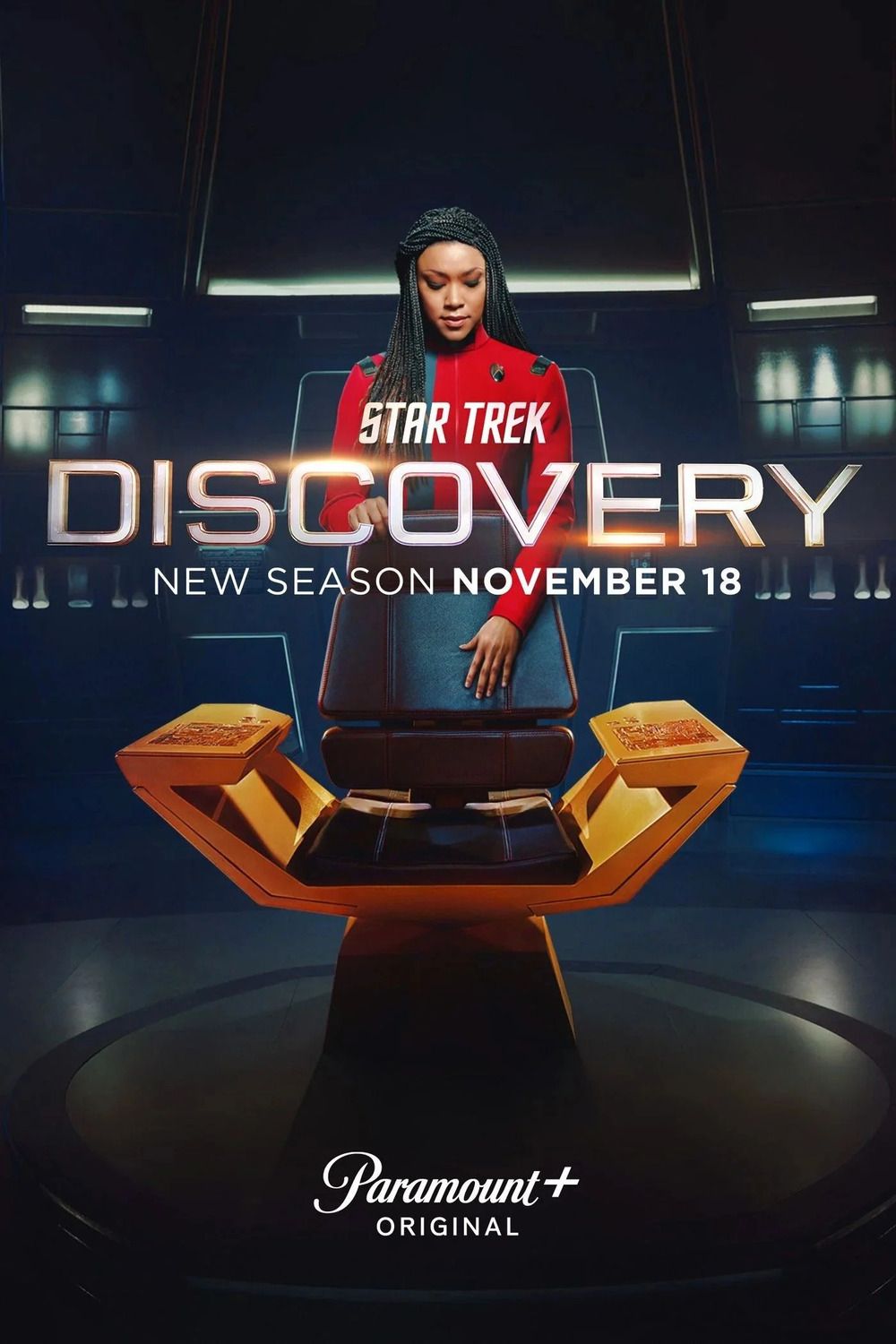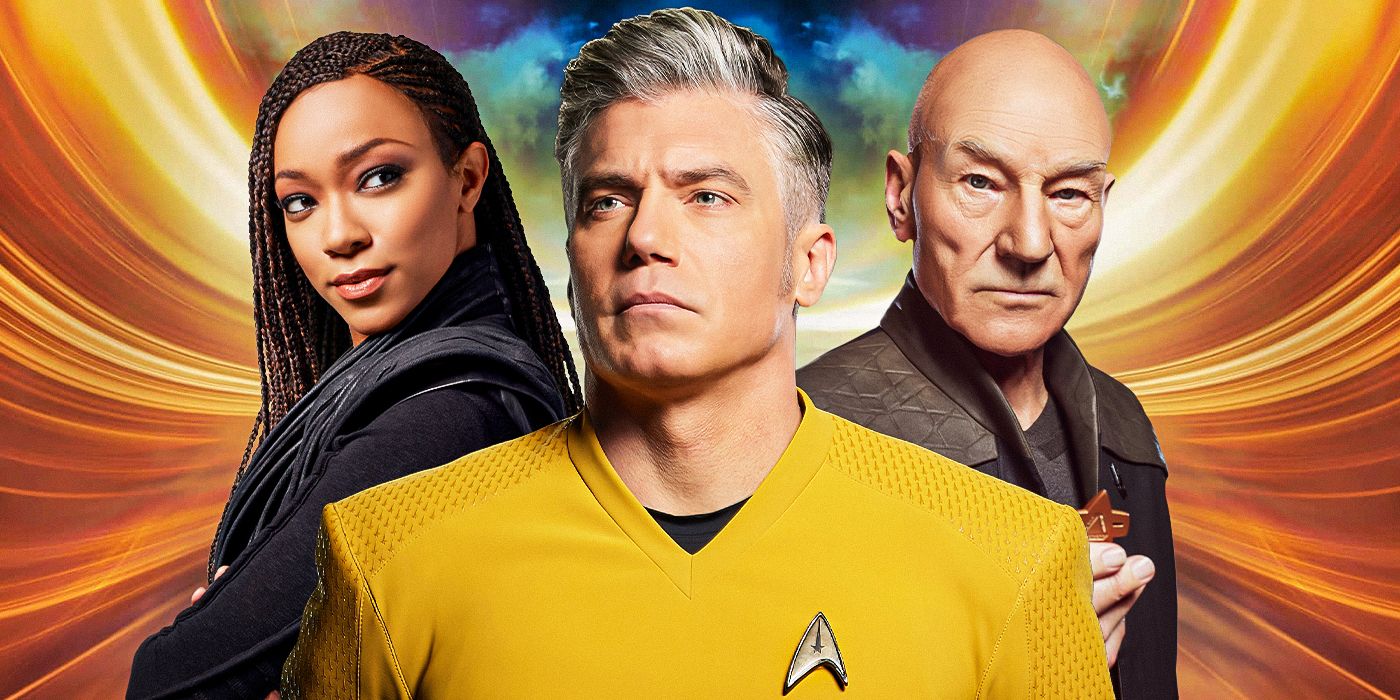The Big Picture
- Executive Producer Alex Kurtzman reveals the process of getting a new
Star Trek
series started at Paramount+. - Co-showrunner Michelle Paradise explains the budget strategy for a season of Star Trek: Discovery.
- Kurtzman emphasizes the importance of character-driven stories in smaller-budgeted episodes.
With five Star Trek series and one movie in various states of development right now, Executive Producer Alex Kurtzman knows a thing or two about getting a new show from the idea stage to the screen. With Star Trek: Discovery getting an early Season 5 premiere at SXSW, Kurtzman and co-showrunner Michelle Paradise stopped by the Collider studio to chat with Steve Weintraub about what it takes to get a new Star Trek series moving at Paramount+ — and how they deploy a season-long budget.
While there’s still no announcement on whether Paramount+ will greenlight the buzzy Picard spin-off Star Trek: Legacy, Kurtzman was able to shed some light on how they go about getting started on a new series. “It’s a communal conversation,” he told Collider, “meaning I talk to the head of the studio, David Stapf, who’s been incredibly supportive from the beginning, from Discovery’s launch.” He explained the process in further detail, saying:
“And then we go, and we talk to the Paramount+ folks, and we tell them ‘Here’s what we’re thinking. In order to get to this show,
we’re going to need to start planning really two years ahead
, which means you have to start putting things in development.’ It’s actually a small group of people. And then once you figure out what show everybody wants to make, then it becomes a question of what it costs to make it.”
How Is a ‘Star Trek’ Show’s Budget Used Across a Whole Season?
While mileage may vary slightly from series to series, especially from live-action to animation, Paradise explained that on her series they “launch with a bang and end with a bang” while maintaining a consistent balance through the middle of a series. “I think it depends on the individual episode. So for example, our premieres and finales have always tended to be a little bit bigger than pattern,” she told Collider.
“We have a pattern budget which is the number that we want to hit for any given episode. Because our premieres and finales are typically larger, because
we wanna launch with a bang and end with a bang
, we just know that if we go over the pattern in the episode or in a particular area of the episode that in later episodes, we’re gonna need to make that up. So it’s really a matter of just making sure that we are diligent about that and keeping track along the way. So that by the end of the season, we have hit our pattern for all of the episodes, even if one or more went over.”
Weintraub joked about how if they want to splurge on big sets, costumes, or effects — anything that might run the budget up — for a certain episode, they might need to work a “flashlight” episode into the middle of the season. It’s a common money-saving practice that can be spotted on classic Trek shows when the characters are all stuck in one location, using flashlights and avoiding run-ins with effects-heavy aliens. Paradise explained that they’re “very thoughtful about that,” in the writers room.
With premieres and finales typically being the big spenders, Paradise explained that if they need to move the budget for the mid-season episodes around to compensate they know when to slide in a bottle episode. “Then we just kind of know, here’s how much we have to make up along the way. And we’re diligent about making sure that if we need to do a bottle episode, we do a bottle episode.” Playing off of Weintraub, she said, “We do flashlights and no one gets to change their costumes.”
Kurtzman was also quick to note that those smaller budgeted episodes can also do wonders for the characters and the overall narrative of the season. “It’s an essential part of it,” he said.
“In fact, I think from a dramatic perspective, it’s great because it forces you to tell stories that are just focused on character. Nothing else. If you say like, ‘Sorry, you don’t get any explosions this episode, you don’t get anything, any of the bells and whistles. You just have to write people in a room.’ It forces your brain into a different space than you’re usually in, which is a great thing — if you’re doing it right, it’s a great thing for character.”
Star Trek: Discovery Season 5 premieres on Paramount+ on April 4, and you can catch up with Seasons 1-4 on the streamer right now. Stay tuned for the rest of our conversation with Kurtzman and Paradise, as well as the cast of Discovery at SXSW.

Star Trek: Discovery
Taking place almost a decade before Captain Kirk’s Enterprise, the USS Discovery charts a course to uncover new worlds and life forms.
Release Date September 24, 2017
Main Genre Sci-Fi
Seasons 5
WATCH ON PARAMOUNT+


